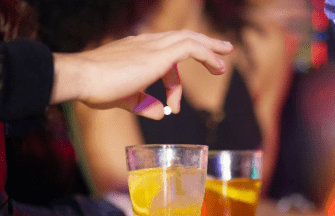There’s been a call for action in preventing spiking and sexual violence with a massive increase in spiking incidents across NSW recorded between 2018 and 2022.
Over the four-year period there was a staggering 86 per cent rise in food and drink spiking.
The ‘What Were You Wearing Campaign’ founder, Sarah Williams, said there should be more measures put in place for bar staff in preventing drink spiking at NSW nightclubs.
“We want to amend the. We want to have a whole section for drink spiking and then a whole section on sexual violence awareness,” Ms Williams said.
By supplying nightclub staff with extensive training and awareness on how to stop drink spiking, it is expected that spiking rates will drop.
Following the massive jump in spiking rates in NSW, thousands of people have signed petitions for bar staff to be better equipped and educated when dealing with drink spiking.
The ‘What Were You Wearing Campaign’ petition calls for the government to mandate trauma informed training for bar-staff and security working at all nightclubs in NSW. The campaign has already reached 15,000 out of 20,000 signatures needed before it is put forward to the NSW Legislative Assembly.
Newcastle has one of the highest rates of drink spiking per capita in NSW with 11 per cent of the state’s reported drink spiking in 2022 occurring in Newcastle. The ‘What Were You Wearing Campaign’ originated in Newcastle showing the relevance and opportunity for positive change the petition holds.
While reports of drink spiking have increased drastically, it still remains one of the most unreported crimes in NSW. Drink spiking is a serious offense; however, it rarely ends with the prosecution of the perpetrator. Only 1.3 per cent of reported drink spiking incidents have led to the criminal proceedings of the culprit within 30 days, according to BOSCAR.
Executive Director at BOSCAR, Jackie Fitzgerald said that one of the factors contributing to the low report rate of drink spiking could be associated with the legal action rate.
“If you look at the legal action rate or how many incidents that are reported to police actually result in a prosecution and it’s very small around one per cent,” she said.
Seventy per cent of drink spiking reported to NSW police occurred in licensed venues. As licensed venues are the most dangerous in terms of drink spiking, it shows the need for action in creating a safe environment for nightclub-goers. An initiative put forward to tackle drink spiking as an issue can be seen through the NSW police forces efforts to introduce drink covers to prevent spiking attacks.
For those who fall victim to drink spiking, the NSW police recommends contacting a family member or friend to get to a safe place, or the nearest emergency department or call an ambulance. Symptoms of drink spiking can include feelings of dizziness, nausea, drowsiness, or feeling overly intoxicated or passing out.

